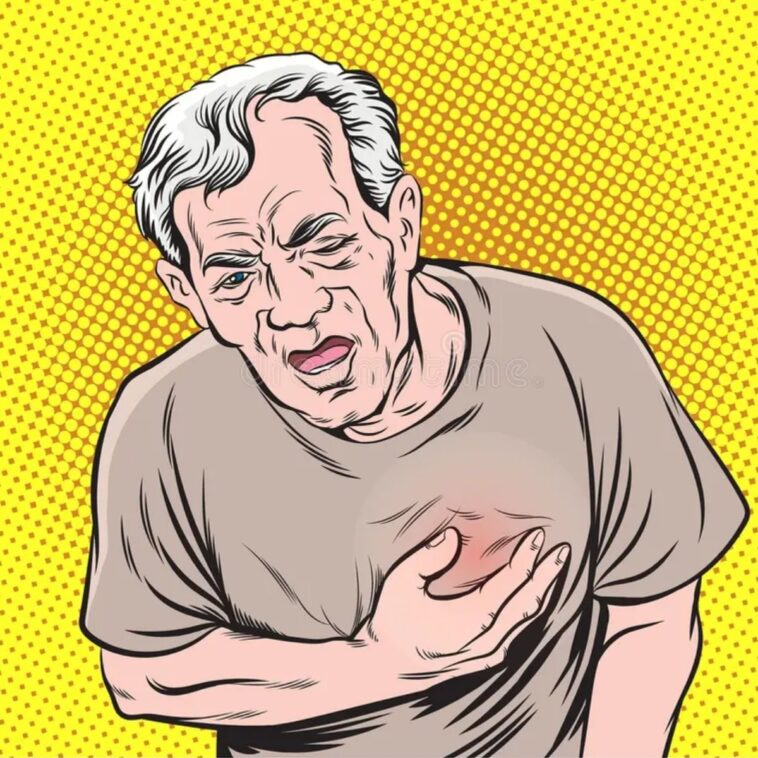Many people think heart problems always come with obvious warning signs like chest pain or shortness of breath. However, your heart often sends quieter signals that something isn’t quite right. These subtle signs are easy to miss or mistake for something else, especially when we’re busy with our daily lives.
Understanding these gentler warnings from your heart could help you catch problems early, when they’re easier to address. While not every symptom means you have a serious heart condition, knowing what to look for helps you make better decisions about your health. Let’s explore five subtle signs that your heart might need some attention.
1. Unusual Tiredness During Daily Activities
Remember when you could easily do the grocery shopping or walk up a flight of stairs without feeling worn out? If you’re finding yourself unusually tired during these everyday tasks, your heart might be trying to tell you something. This isn’t the normal tiredness that comes after a busy day – it’s a deeper fatigue that shows up even during simple activities.
This kind of fatigue happens because your heart might be struggling to pump blood efficiently throughout your body. When your muscles don’t get enough oxygen-rich blood, even small tasks can feel exhausting. If you notice yourself needing to rest more often during activities that used to be easy, it’s worth paying attention to this change.
2. Swollen Ankles and Feet
Have you noticed your shoes feeling tighter as the day goes on, or marks from your socks staying on your ankles longer than usual? While many people blame their shoes or think it’s just part of aging, swollen ankles and feet can be a quiet signal from your heart that it’s having trouble moving blood around your body properly.
When your heart isn’t pumping as strongly as it should, fluid can build up in your lower legs, especially after sitting or standing for long periods. This swelling often gets worse during the day and might improve when you elevate your feet. While occasional swelling can be normal, regular or increasing swelling deserves attention from your doctor.
3. Changes in Your Sleep Patterns
Finding yourself needing to prop up more pillows to sleep comfortably, or waking up feeling unusually short of breath? These subtle changes in your sleep habits might be more than just a comfort preference. Your heart could be telling you it needs help, especially if you find yourself waking up feeling anxious or breathless in the middle of the night.
These sleep changes happen because lying flat can make it harder for your heart to pump blood effectively throughout your body. Adding pillows might make breathing easier because it helps reduce the workload on your heart. If you notice these changes in your sleeping habits, particularly if they’re becoming more frequent, it’s time to talk to your doctor.
4. Irregular Heartbeat or Fluttering
That occasional flutter or skip in your heartbeat might seem harmless, especially if it only happens now and then. You might feel it as a brief moment when your heart seems to pause or race, then return to normal. While some irregular heartbeats are harmless, new or increasing episodes deserve medical attention.
These heart rhythm changes can feel scary when they happen, but many people hesitate to mention them to their doctor, especially if they don’t last long. However, these subtle changes in your heart’s rhythm could be early warnings of strain on your heart that needs addressing. Keeping track of when these episodes happen can help your doctor understand what’s going on.
5. Unexplained Dizziness or Light-headedness
Getting a bit dizzy when you stand up quickly might seem like no big deal, especially if it passes quickly. However, if you’re noticing more frequent episodes of dizziness or light-headedness, particularly during light activity or when changing positions, your heart might be sending you an important message.
These dizzy spells happen when your brain isn’t getting enough blood flow, which could mean your heart is having trouble maintaining proper blood pressure. While not every dizzy spell means you have heart problems, increasing episodes of unexplained dizziness, especially if they’re becoming more frequent, should prompt a conversation with your healthcare provider.
When to See Your Doctor
Recognizing these subtle signs is just the first step – knowing when to act on them is equally important. If you notice any of these changes, especially if they’re becoming more frequent or affecting your daily life, it’s time to schedule a check-up with your doctor. Early attention to these symptoms often leads to better outcomes.
Don’t let fear or embarrassment keep you from discussing these symptoms with your healthcare provider. Many heart problems are much easier to treat when caught early, and your doctor would much rather help you prevent a serious problem than treat one that’s been ignored too long.
Taking Care of Your Heart
Your heart works tirelessly to keep you alive, pumping blood throughout your body day and night. Paying attention to its subtle signals helps you take better care of this vital organ. Remember, these signs don’t always mean you have a serious heart condition, but they deserve attention and professional evaluation.
Being aware of these subtle changes in your body and taking action when you notice them is one of the best ways to protect your heart health. Trust your instincts – if something doesn’t feel right, it’s always better to have it checked and find out everything is fine than to ignore a warning sign that could have helped prevent a more serious problem.


